
Healthcare is the primary right of each citizen. Our healthcare needs should be covered by the state. Unfortunately, India’s healthcare infrastructure is so poor, and government insurance coverage is so limited and underpenetrated, that a middle class family ends up spending a hefty amount. We all remember how Covid exposed the heath infrastructure of India and the country’s far from readiness to handle such pandemics.
India now has a population of over 1.4 billion, surpassing China, and is home to 18% of the world’s population. According to the Human Development Report 2020, out of 167 countries, India ranks 155th on bed availability per 10,000 population. India has just 5 beds per 10,000 people, compared to the WHO recommendation of 30 beds. Our government spending on healthcare is only 3% of GDP, compared to the world average of 11%. This clearly indicates that India has a huge deficit of hospitals and medical devices.
The primary drivers of the medical device industry are described below.
Growing demand
The current total available market (TAM) for medical devices in India is US$12 billion and is expected to grow annually at 12.5%. It is projected to reach US$40 billion in a decade’s time, which is a higher growth rate than the global average of 5% (IBEF). The exports of medical devices from India stood at US$2.9 billion in FY22 and are expected to rise to US$10 billion by 2025.
The growing per capita income of India, focus on preventive care and wellness, and the aging population will further contribute to the demand for healthcare delivery.
This story is from the August 2023 edition of Electronics For You.
Start your 7-day Magzter GOLD free trial to access thousands of curated premium stories, and 9,000+ magazines and newspapers.
Already a subscriber ? Sign In
This story is from the August 2023 edition of Electronics For You.
Start your 7-day Magzter GOLD free trial to access thousands of curated premium stories, and 9,000+ magazines and newspapers.
Already a subscriber? Sign In
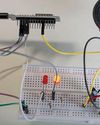
ESP32-Powered AUDIO-VISUAL SIREN
This sound alternator is designed to simulate the effects of a police siren, combining sound and light to create a dynamic audio-visual experience.
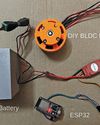
BLDC MOTOR With Web-Based Speed Control Using ESP32
Integrating wireless control into brushless direct current (BLDC) motor systems opens up exciting possibilities for applications such as remote-controlled cars, robots, and other innovative systems.
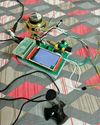
Pi Zero Portable BILINGUAL TRANSLATOR
This system is designed as a bilingual translator, leveraging the gTTS library to support multiple Indian languages, including English (en), Bengali (bn), Gujarati (gu), Hindi (hi), Kannada (kn), Malayalam (ml), Marathi (mr), Tamil (ta), Telugu (te), and Urdu (ur).
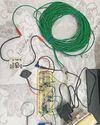
Op-Amp-Based VEHICLE THEFT DETECTOR
A simple, low-cost device can effectively alert homeowners or occupants if a parked vehicle is moved or tampered with.
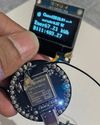
loT SMART METER With Dashboard
Energy meters in homes track electricity usage, enabling accurate billing by governments and providers.

Choose The Right Cloud Platform For Implementing loT PROTOCOLS
Working with loT protocols like MQTT, AMQP, and CoAP on cloud platforms is essential for developing scalable and efficient lol applications. The choice of the programming platform will depend on factors like project requirements, existing skills, and target devices. Leveraging the appropriate libraries and cloud services can enable seamless integration of lol devices with cloud-based applications.

Why TMR SENSORS Lead Next-Generation Design
TMR sensors are gaining traction in industries needing precision and power efficiency. What makes them the go-to choice for modern designs?
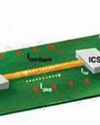
DESIGNING PCBs For EMI Management
Electromagnetic interference can derail your PCB’s performance. EMI management is not just a technical necessity but a hallmark of exceptional PCB design.

CUTTING COSTS, NOT CORNERS: Building Large Scale Applications With Open Source Software
Here are some strategies and best practices for leveraging open source to create enterprise-grade web and mobile applications without sacrificing quality or functionality.

"We Are One Of India's Very Few State Bodies To Manage The Entire Lifecycle Of The Electronics EcosystemFrom Approvals To Subsidies."
What is Gujarat State Electronics Mission GSEM), and how is it attracting major investments in electronics manufacturing, particularly semiconductor manufacturing, to Gujarat? To delve deeper, Electronics For You’s Nijhum Rudra spoke with Manish Gurwani, the head of GSEM. Here is what he revealed...